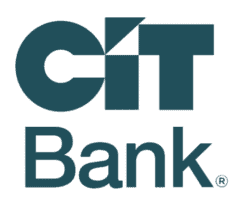What do you think of when you hear the word ‘budget’? Do you think of something restrictive or something that gives you freedom? By nature, most people hate living on a budget. They think you can’t enjoy life on a budget.
We know that’s not the case. A spending plan is a helpful tool to help manage your finances, and it’s essential to your personal financial health and literacy to know some common monthly household expenses.
This applies whether you live on a budget or not.
When you know your average monthly expenses, you know exactly where your money goes each month. It lets you identify areas to cut back and save money. It also lets you see if it’s possible to reach a specific goal.
Our guide shares common expenses you will have and how to rein in spending.
Table of Contents
What are the Most Common Monthly Household Expenses?
A lot in life is specific to your home and needs. However, we all have similar monthly household expenses. Those include:
- Housing
- Transportation
- Food
Everyone has the above expenses, and the first two are usually fixed in nature. Other expenses are variable or not occur each month. Some of those expenses are:
- Debt
- Health care
- Child care
- Entertainment
- Personal care
- Miscellaneous (ex., subscriptions, haircuts)
Regardless of your individual situation, the only way you can know your average monthly household expenses is by staying on top of your bills.
This does not mean you have to live on a budget, but you do need to know how you spend money each month and if you must look for money-saving opportunities.
Here are nine common monthly household expenses and what you can do to save money on each.
1. Housing Expenses
Whether you own a home or rent, you have housing expenses and they should be at the top of your list of bills to pay.
For the purpose of our article, we’ll discuss owning a home since landlords often pay a majority of housing-related expenses for renters.
If you own a house, you have the following monthly expenses:
- Mortgage payments
- Monthly utilities like water, electric, or gas
- Repair and maintenance costs
You should aim to spend no more than 30 percent of your gross monthly income on housing. You can lower these costs in several ways, from living in a lower cost of living area to having a roommate.
Housing is your largest monthly expense, so you don’t want spending to get out of hand.
Overspending on housing, or any other area, directly impacts how much income you have to apply towards other areas.
If you own your home, you may benefit from refinancing the mortgage. Even a reduction of one percent can significantly lower your monthly payment.
Although rates are currently high, it doesn’t hurt to research what kind of interest rate you can get through refinancing.
2. Transportation Costs
We all require transportation. For many that means owning a car. That often means having a car payment as most people are unable to buy a car with cash.
Car payments are a drain on your monthly budget, especially if you overextend your budget to buy one.
If you have a car payment, it should not account for more than ten percent of your monthly gross income. For example, if you gross $4,000 per month, your payment should not exceed $400.
However, the average car payment is over $650 per month for a new car. If you buy used, the average car note is over $500.
If you spend more than ten percent of your income on a car payment, you need to find a way to reduce that cost. You can do any of the following:
- Sell your car and buy a lower-priced one
- Sell your car and use public transportation
- Drive your current car for longer
- Combine trips to spend less on gas
With a little creativity, you can lower your transportation costs and have extra money to apply to other needs.
3. Food Costs
Food waste is literally throwing money in the trash. The average American loses over $600 to food waste each year, or $240 billion as a country. That is a staggering number, and one that’s relatively simple to lower.
The key is to plan accordingly and be conscious of where you’re spending your money.
I love to meal plan because it helps me save money and reduce food waste. We eat about 90 percent of our meals at home each month, and I don’t get tired of the kitchen because I meal plan and prep weekly.
If you have no idea where to start when it comes to getting a meal plan, check out $5 Meal Plan. This affordable program gives you grocery lists, recipes, and meal lists to help you save money.
You can try it out for free with a 14-day trial.
You may also want to pair it with a grocery rebate app like Ibotta to get cash back on purchases. Ibotta even gives you $5 when you open an account.
4. Health Care Costs
We all know how expensive health care expenses are to manage. Whether you purchase your own coverage or get it through your employer, you can see how much you spend on it each month.
Managing health care costs go hand in hand with managing your finances. Choosing lower cost options directly impacts your monthly budget without impacting quality of care.
Below are a few ways to save on health care costs:
- Choose generic over name-brand medication
- Use an HSA plan with your high-deductible healthcare plan – Lively is a great option
- Negotiate with the doctor’s office for a lower bill if you pay in cash
Education is key when saving on health care costs. Make sure to ask questions of your doctor and pharmacist to find the best available low-cost options.
The last thing you want is to receive short-term savings at the expense of long-term pains.
While not directly health care related, vision costs should also be included in this category. It’s easy to overspend in this area and impact your budget.
Read our guides on where to buy cheap glasses online and where to buy cheap contact lenses online to save money on these expenses.
5. Debt
Unfortunately, debt must be included in our list of common monthly expenses. Countless people struggle with debt, whether it’s consumer or student loan debt.
If you have credit card debt, you must treat it as an emergency and pay it off as soon as possible. The sooner you pay it off, the sooner you can apply those funds to other expenses.
Online lenders like SoFi can help you slash rates in half or more so you can pay off the debt quicker. SoFi lets you borrow as little as $5,000 to consolidate your debt, or lower rates.
After completing a brief application, SoFi provides your rate which can be as low as 8.99 percent. There are no fees required.
Read our SoFi review to learn more about the lender. Even if you don’t lower your rate, don’t let that hold you back from attacking your debt.
6. Entertainment Costs
What’s classified as an entertainment expense varies widely. Anything you spend money on that provides entertainment value counts, including:
- Cable TV
- Going to the movies
- Date nights
- Going out to eat
- Buying a fun item you want
This area of average monthly household expenses can easily get out of hand. It’s vital to monitor these costs so they don’t overtake other areas of your budget.
If you’re not sure where to start getting your entertainment budget under control, the easiest place to begin is with your cable TV.
The average cable bill is $200 per month, but you can use a streaming provider for less than half that cost and still get the same content.
7. Personal Care Expenses
Personal care expenses include items you need to groom and care for yourself. These do not include going out for lunch or grabbing a cup of coffee, as those fall under food costs.
Example expenses include:
- Gym or health club memberships
- Toiletries
- Clothing for work
- Hair cuts, or anything grooming related
Like other areas, looking for ways to cut costs is important. For items you buy at the store, you may want to use a cash back app to help mitigate costs.
For items you use regularly, you may also want to consider shopping at a dollar store. Read our guide on the top dollar stores online to identify the best choice for you.
8. Childcare
Childcare is likely one of your biggest typical monthly expenses if you have young kids. If possible, try to look for alternatives to paying high childcare fees.
Even a babysitter who comes to your house can save you money.
Some may even have kids of their own so your child won’t lose out on the socialization aspect that childcare centers provide. Family members or friends would probably love to help out.
All you need to do is ask.
If you can afford to stay home or decide that you and your spouse can have alternating work schedules, either of these options are perfect ways for you to watch over your child instead of paying for childcare!
9. Miscellaneous Expenses
Miscellaneous expenses include anything not already mentioned. These may be variable expenses, or expenses you don’t incur on a regular basis, such as:
- Subscription services
- Holiday and birthday gifts
- Pet costs
- Vacation costs
This area also spans a wide spectrum. For subscription services, you may want to use a service like Trim to negotiate lower prices on your behalf or completely cancel the service.
If you’re able, take any overage you have each month and put it in a bank, like CIT Bank, to grow your savings. Even saving small amounts will do a lot to bring financial stability to your life.
Go Make A Budget
If you follow the list of common monthly expenses, the goal is to make a budget. You may not want to make a budget, and that’s fine.
But you should find some way to figure out how you spend your money. There’s power in knowing that.
If you do want to know how to make a budget, you need two key pieces of information: your income and your monthly expenses.
To determine your income, look at your pay stubs to get an idea of how much you earn each month. If you’re salaried, that is an easier number to determine.
For hourly employees, it’s best to take your previous month’s income as a base.
You want your income to be more than your monthly expenses. If they’re not, you’re at risk of living paycheck-to-paycheck or worse, taking on debt.
For further information on what you should spend each month, read our guide on recommended budget percentages to start.
Bottom Line
It’s important to regularly review your expenses to see how much you’re really spending. You’ll often find that you’re spending too much on some monthly expenses and need ways to save money.
To get the most accurate picture, go line by line to analyze each expense to calculate how much you’re spending annually. This takes work, but it’s a great way to find better ways to make your money work for you.
How much money do you try to save each month?
*Personal Loan Disclaimer: Fixed rates from 8.99% APR to 23.43% APR APR reflect the 0.25% autopay discount and a 0.25% direct deposit discount. SoFi rate ranges are current as of 3/06/23 and are subject to change without notice. Not all rates and amounts available in all states. See Personal Loan eligibility details. Not all applicants qualify for the lowest rate. Lowest rates reserved for the most creditworthy borrowers. Your actual rate will be within the range of rates listed above and will depend on a variety of factors, including evaluation of your credit worthiness, income, and other factors. See APR examples and terms. The SoFi 0.25% AutoPay interest rate reduction requires you to agree to make monthly principal and interest payments by an automatic monthly deduction from a savings or checking account. The benefit will discontinue and be lost for periods in which you do not pay by automatic deduction from a savings or checking account. Autopay is not required to receive a loan from SoFi. Direct Deposit Discount: To be eligible to potentially receive an additional (0.25%) interest rate reduction for setting up direct deposit with a SoFi Checking and Savings account offered by SoFi Bank, N.A. or eligible cash management account offered by SoFi Securities, LLC (“Direct Deposit Account”), you must have an open Direct Deposit Account within 30 days of the funding of your Loan. Once eligible, you will receive this discount during periods in which you have enabled payroll direct deposits of at least $1,000/month to a Direct Deposit Account in accordance with SoFi’s reasonable procedures and requirements to be determined at SoFi’s sole discretion. This discount will be lost during periods in which SoFi determines you have turned off direct deposits to your Direct Deposit Account. You are not required to enroll in direct deposits to receive a Loan.
Choncé is a Certified Financial Education Instructor (CFEI), personal finance freelance writer, and blogger who focuses on helping others manage their money better in order to live a life with more possibilities and fewer limitations. Her work has been featured on Business Insider, LendingTree, Credit Sesame, and Barclaycard.






